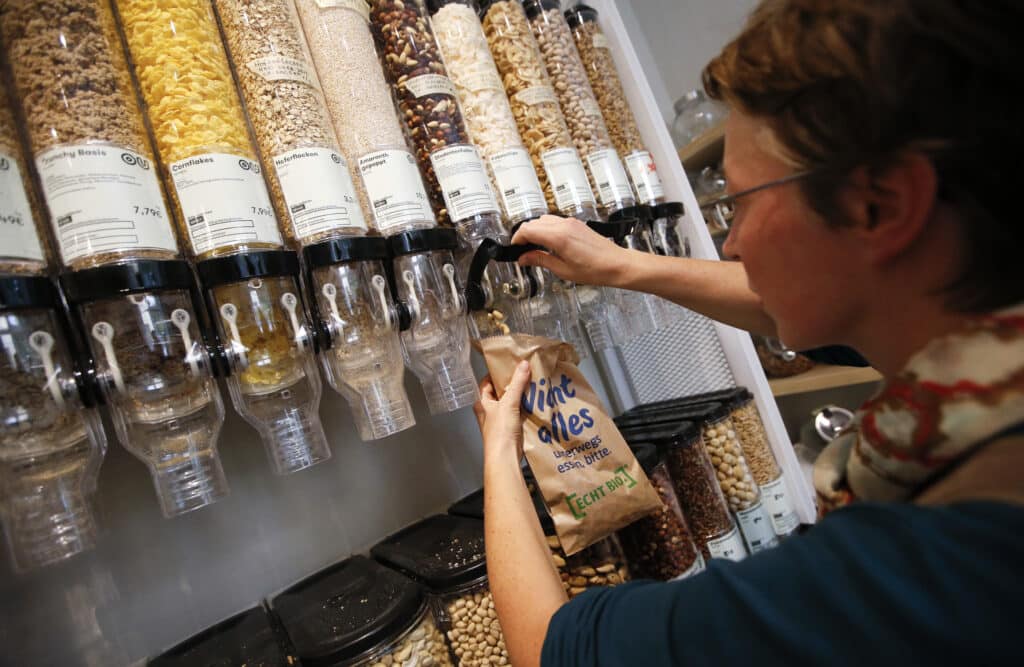Save Plastic and Reduce Carbon Footprint. We all understand the significance of reducing our carbon footprint and plastic use for a healthier and more sustainable world. But how can we actually make an impactful difference? Here are five simple strategies that will have a positive effect on the environment by cutting our carbon emissions and plastic consumption.
Assigning less plastic to single-use items and investing in a reusable water bottle are just two easy ways these tips will help reduce plastic and carbon emissions in everyday life. By taking just a few simple steps, we can all contribute towards building a more sustainable planet – so let’s get going!
1) Carry A Reusable Water Bottle

Did you know that 80% of the world’s tap water is polluted? Consumption of polluted tap water exposes us to harmful chemicals and minerals which have been linked to cancer and heart disease, among others. But not just tap water should concern us: bottlers produce 33 billion plastic water bottles annually that end up either in landfills or the oceans – an environmental disaster!
By switching from bottled to reusable water bottles, you can reduce your plastic footprint by 95% – and also do your body good by helping protect the environment! Not only are you contributing towards protecting the planet’s future; you’re doing something amazing for both of your health.
2) Avoid Single-Use Plastic Items

Plastic pollution typically refers to items like plastic bags and water bottles; however, many other everyday items use plastic, too. One such example would be cheese: usually wrapped in plastic wrap. Unfortunately, not just cheese itself can pose a problem; plastic can remain in our environment for centuries afterward.
One way to reduce plastic use is by opting for single-use food packaging like bags, wraps and containers made of single-use plastic. You can further decrease your plastic usage at home by switching out plastic shower heads for metal ones and selecting products made from recycled plastic as it can be recycled again and again.
3) Invest In Reusable Grocery Bags

Your grocery bags may not come to mind as sources of pollution, but they certainly are. Plastic grocery bags made of low-grade plastic take up to 1,000 years to degrade in landfills – quite an impact for an item with such short lifecycle as grocery bags! If you shop regularly at supermarkets, that equates to 30-60 plastic bags per year being consumed as waste by society.
By investing in reusable grocery bags, you can decrease your carbon footprint by up to 90% and help protect marine life as plastic bags are often eaten by animals and birds resulting in sickness or even death.
4) Buy Products With Minimal Packaging

At first glance, fancy packaging would seem to make customers more likely to purchase products, but that isn’t usually the case. Most packaging serves simply to catch people’s eyes; unfortunately much of this material (particularly plastic-based materials) are almost impossible to fully recycle.
By purchasing products with minimal packaging, you can significantly decrease your plastic footprint. Furthermore, many online stores now carry items without plastic wrapping entirely.
5) Choose Recycled Materials When Possible

If you’re building or renovating a house, recycled materials could be an option to reduce carbon emissions and improve air quality in your home. They can also make work life better; desk organizers, file folders, notebooks and binders can all be made from them! And don’t forget clothing and shoes too – using recycled materials could even cut costs!
Also Refer:- How To Reduce Your Use of Plastic To Help The Environment
Many fashion brands now offer shoes and clothing crafted from recycled materials to reduce carbon emissions. Did you know that 80% of global tap water is polluted with harmful chemicals and minerals that may lead to diseases such as cancer and heart disease? And it’s not only tap water we should worry about; bottled water poses equally dire environmental threats.
